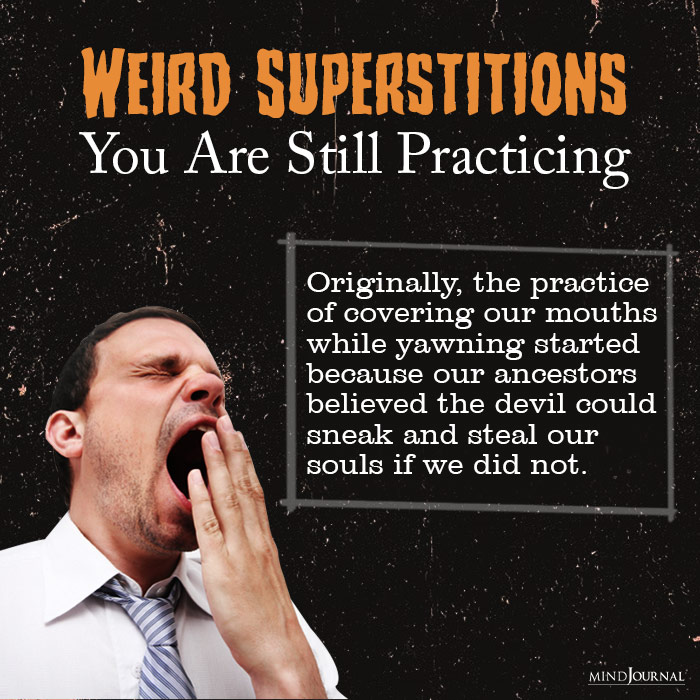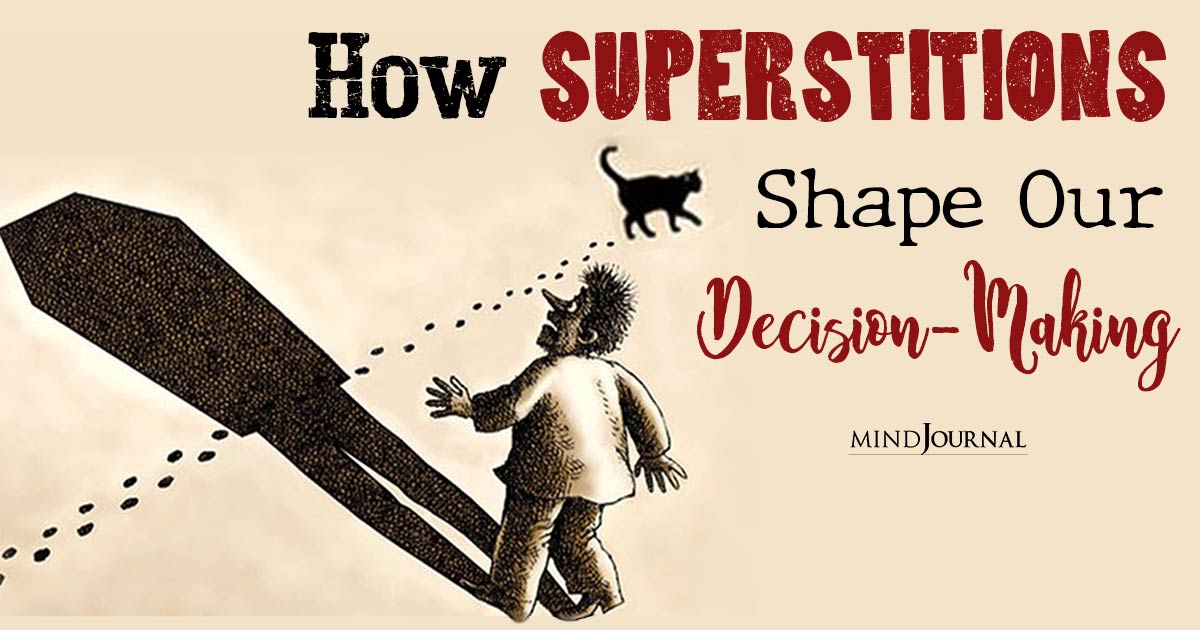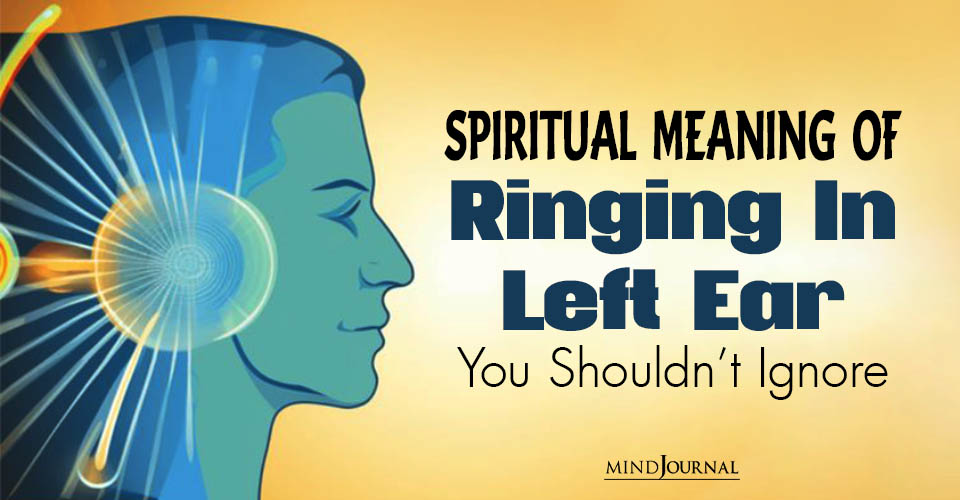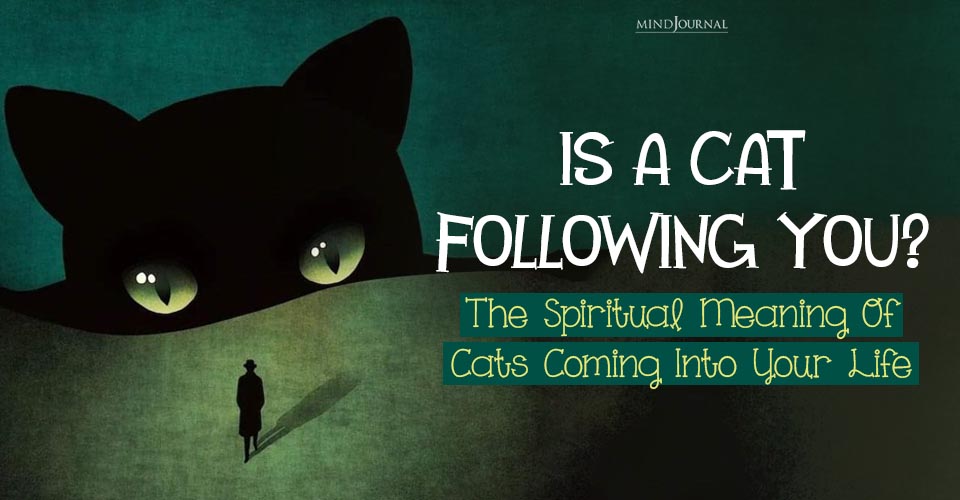Do you believe in superstitions? Do you allow superstitious beliefs to influence your decisions and the course of your life? Well, whether you like it or not, superstitions, directly or indirectly, play strong role in our decision-making.
Unexpectedly, superstitions—beliefs and practices that appear illogical and are frequently based on cultural traditions—have a significant impact on our lives. Superstitions are subtle yet profound; they are present in many aspects of our daily lives, from carrying lucky charms to avoiding black cats.
This is why it is crucial that we take a closer look at how superstitions influence our choices and shed light on the intricate interactions between psychology, behavior, and belief, demonstrating the lasting influence of these antiquated customs in modern society.
My Experiences with Superstitions
Superstition has the ability to direct behavior, inspire confidence, or even induce hesitancy in a variety of contexts, including sports, business, and interpersonal relationships. These enduring ideas continue to influence our decisions and actions, even if contemporary culture places a premium on logical and scientific reasoning. And the same goes for me.
I distinctly remember two instances in my life related to superstitions and consecutive decision making that left me mind-boggled. Even now when I think back to those incidents, it makes me wonder just how much we let superstitions control us and the way we think.
Related: 18 Weird Superstitions You’re Probably Still Following Without Realizing
Once when I was a teenager and lived with my family in the small town of Sturgis in South Dakota. And another time when my best friend and I were strolling through the sprawling grounds of UPenn. Let me tell you what happened.
At 15 in Sturgis, South Dakota:
I remember this specific day when my sister and I were helping set up the dinner table. Mom and Dad were cooking together in our kitchen as usual. In my attempt to reach out and grab a napkin, I knocked over the salt shaker. It made a sound that didn’t escape my mother’s ears.
When she turned around and noticed that there was a puddle of salt on the table, her face grew pale. ‘Brynn, throw a pinch of salt over your shoulder. Now!‘ Dad came in on the scene, saw me with a blank look on my face and explained that spilling salt causes back luck if you don’t throw a pinch of it over your shoulder.

I don’t remember whether I believed them or not, but I did what I was asked to do and still practice this silly little ritual every time I knock over salt.
That was one episode. I truly didn’t think I’d experience something like that ever again. I was wrong.
Just at the beginning of my term at UPenn
My high school best friend Charlotte and I had made it to UPenn and classes started in two days. We even had the same room to share. Things couldn’t get any better. So in the evening we decided to go for a walk.
We were hardly 50 steps from the dormitory when Charlotte suddenly stopped dead in her tracks. Apparently she had noticed a four leaf clover on the ground and those were supposed to bring serious bad luck. She searched around desperately for some wood to knock on, which apparently alleviates the bad luck. But we were just outside the dorm and not in the park area yet, which meant there was only concrete, steel and glass around us.

Somehow I convinced Charlotte that nothing would happen but she refused to continue with the walk and wanted to go back to the dorm. ‘You’ll see Brynn, we’ll suffer because of this.’
Weirdly enough a couple of weeks into our first semester, the boy Charlotte had a crush on asked me out on a date. I was aware of Charlotte’s feelings and turned him down but that was the day Charlotte stopped talking to me and I could never bring her around again.
So did our friendship suffer because of the four leaf clover superstition?
Did my Mom avert some serious bad luck for me by her making me throw a pinch of salt over my shoulder?
Related: Eye Twitches: Spiritual Meaning And Causes
I still ponder and I guess I’ll never know for sure. But these two incidents are so embedded in my mind that should I ever spill salt, superstition or not, I will instantly throw a pinch of it over my shoulder. And should I ever come across a four leaf clover, I’ll not rest until I find some wood to knock on. Not the most rational decision making moments of life, I know.
From my account I guess you could say that superstitions are a colorful thread that frequently goes unseen but has a substantial influence on our actions in the complex tapestry of human behavior.
Superstitions and Human Behavior
Superstitions have a significant impact on our lives, from the routines we follow before significant occasions to the firmly held convictions that direct our daily decision making. In fact, there is an intriguing relationship between superstitions and judgment that reveals the intricate systems which control our actions.
Superstitions are illogical beliefs that defy reason and logic by definition. They cover a broad range of beliefs, from the seemingly harmless practice of avoiding pavement cracks to the more profound beliefs on fate and luck.
Superstitions may seem insignificant at first, but they have a significant impact on our ability of decision making and frequently cause us to make irrational decisions.
Superstitions and Psychology
Is our belief in superstitions related to psychological phenomenon in any way? actually, yes. The phenomenon known as confirmation bias in psychology is one of the main ways that superstitions influence our decisions. Due to this cognitive bias, we are more likely to look for information that supports our pre-existing opinions while rejecting or undervaluing data to the contrary.
Superstitious beliefs strengthen our confidence that they are true because we are more inclined to interpret occurrences in a way that supports them. For instance, if we think that wearing a particular article of clothing brings us luck, we can attribute any success that follows to the item’s existence – even if it’s only accidental.
Just like the incident with Charlotte perhaps would have happened anyway. But in my mind its all because of that four leaf clover superstition and the fact that I didn’t listen to Charlotte about knocking on wood right after.

Furthermore, superstitions are frequently used as coping strategies when faced with uncertainty. Because of our innate aversion to uncertainty, humans look for strategies to regulate their surroundings. In circumstances where results are uncertain, superstitions provide a consoling appearance of control over the course of events.
For example, before a tournament, athletes may execute superstitious rituals to bolster their confidence and ease performance anxiety.
Superstition and Culture
It is impossible to overestimate the influence of culture in comprehending the prevalence of superstitions and how they affect judgment. Our ideas and behaviors are greatly influenced by cultural norms and traditions, which also help to sustain superstitions throughout generations.
In certain cultures, anything that is viewed as superstition is viewed as a deeply embedded cultural practice. The cultural context in which superstitions originate is reflected, for instance, in the significance of specific numbers, such as 8 in Chinese culture and 7 in Western culture.
In addition, the entertainment sector profits from our inclination towards superstitions by incorporating them into stories that enthrall viewers everywhere. Popular culture supports superstitions in a variety of ways, from horror movies that play on our deepest anxieties to sports movies that highlight the victory of superstition over hardship.
The way superstitions are portrayed in the media blurs the distinction between fact and fiction and affects not only how society views superstitions but also how individuals believe and behave.
Superstitions frequently lead us to stray from reason and depend instead on instinct or gut feeling when making decisions. While this dependence on intuition can occasionally be advantageous, it can also result in poor decisions made on the basis of faulty logic. For example, someone can decide to act on a superstition rather than consider the facts impartially, which could result in lost opportunities or needless dangers.
Superstitions, although being illogical, are an essential aspect of the human experience and provide valuable insights into the intricacies of the human psyche. Understanding the fundamental processes that underlie superstitions and how they affect judgment gives us important new perspectives on both our own and other people’s conduct.
Since superstitions have a significant impact on our lives, we should approach them with inquiry and open minds rather than discarding them altogether.
Related: 6 Reasons Why Is Friday the 13th Unlucky

Takeaway
Superstitions have a significant impact on our decisions and behavior, influencing it in ways that go against reason and logic. We can better comprehend the psychological processes underlying superstitions and their widespread occurrence in human society by looking at them through the lens of decision-making.
We may make better and more informed decisions by recognizing the influence of superstitions in our lives and navigating the tricky terrain of decision-making.
Frequently Asked Questions (FAQs):
What are superstitions, and how may they affect the way you make decisions?
Superstitions are actions or beliefs that derive from illogical or paranormal conceptions. These ideas have the potential to affect how people make decisions.
Why do people base their decisions on superstitions?
In order to feel in control of unforeseen circumstances or to deal with uncertainty, people may turn to superstitions while making judgments.
What are some typical instances when superstitions affect how people make decisions?
Avoiding particular activities or behaviors that are thought to bring bad luck, such as going under a ladder, shattering a mirror, or spilling salt, are common instances of superstitions impacting decision-making.










Leave a Reply